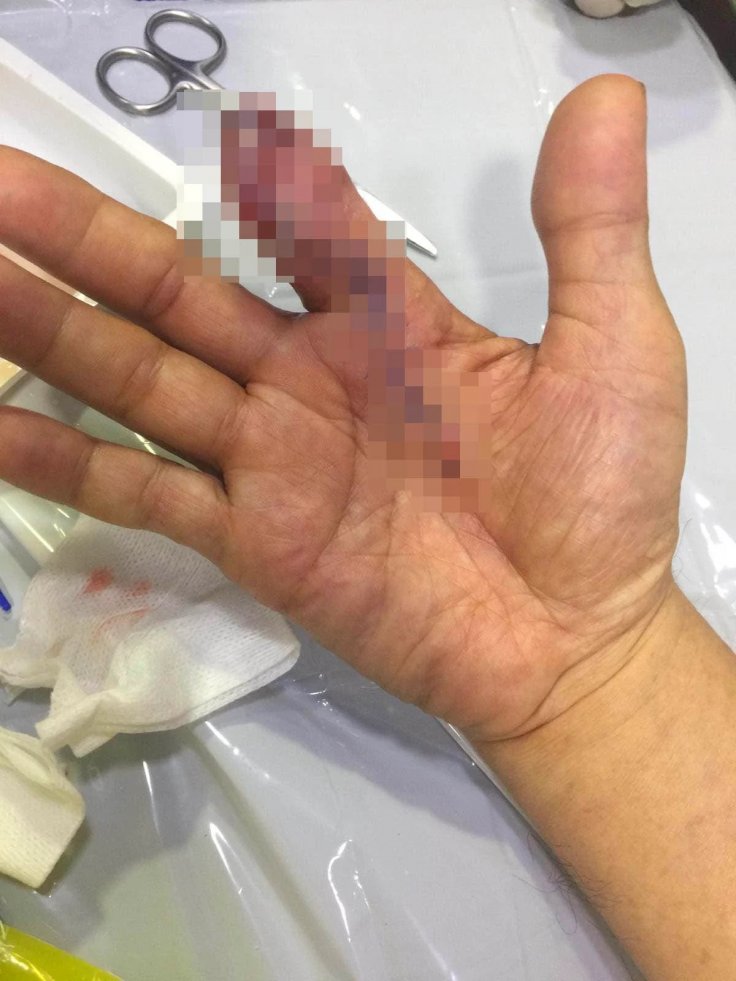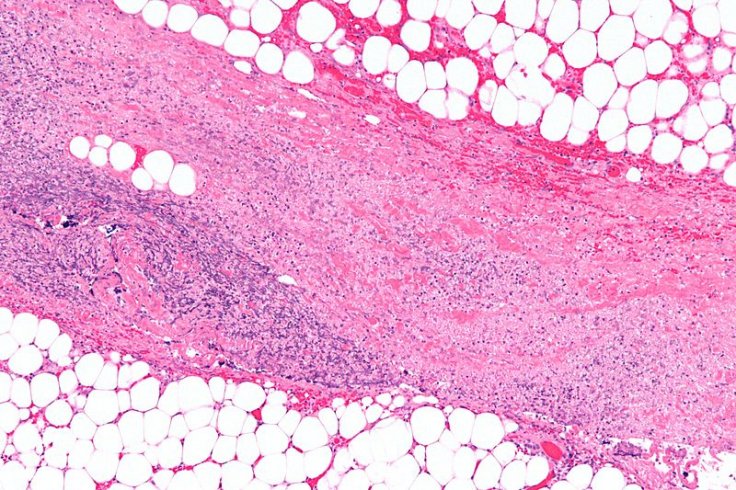A man was infected by flesh-eating bacteria while he was cleaning prawns that he bought from a wet market in Singapore. When he noticed that his index finger had turned black and developed a mild fever the next day, the unnamed man went to a 24-hour clinic in Toa Payoh and was advised to go to a hospital immediately.
He underwent surgery and had to have part of his right index finger amputated. The man was in the hospital for seven days, including two days in the intensive care unit. The doctors told him that if he had waited for another day, there was a possibility that he could have lost his arm or even died as the flesh-eating bacteria could have reached up to his armpit.
The man said he had been pricked by prawns many times before but he did not think that this time he will lose part of his finger. The victim warned other people to be very careful while cleaning raw prawns or any kind of seafood.

In a Facebook post, a friend of the victim posted the photo of the amputated finger and wrote that "This happened to a friend: 'I was pricked by a raw prawn bought from wet mkt. During the washing and cleaning, i was pricked. I hv been pricked many times before and thought this was no difference.'"
A Dangerous Disease
Flesh-eating disease or Necrotizing fasciitis is a serious bacterial infection that destroys the tissue under the skin. The disease occurs when bacteria enters the body through a break in the skin, such as cuts and scrapes, burns, insect bites, puncture wounds, and surgical wounds. As per the experts, people with a low immune system can be at greater risk of developing this health condition. The disease includes symptoms like blisters, fever, fatigue, and pain.
Even though it is a rare bacterial infection, it can spread quickly in the body and can cause death. The disease can lead to sepsis, shock, as well as organ failure and can also result in life-long complications from loss of limbs or severe scarring due to surgically removing infected tissue. As per the US CDC "Even with treatment, up to 1 in 3 people with necrotizing fasciitis die from the infection."

It is a very serious illness that requires hospital care, including antibiotics through IV and surgery that are typically the first things to do if a doctor suspects a patient has necrotizing fasciitis. When antibiotics failed to reach all the infected areas that happens when the bacteria kills too much tissue, causing the reduction of blood flow, doctors have to surgically remove the dead tissue. An infected person can also need multiple surgeries, and sometimes blood transfusion, depending on the infection spread.
Elderly Man Contracted Flesh-Eating Bacteria on His Buttocks
Last year, a 68-year-old man from Florida, Mike O'Grady noticed what appeared to be a boil on his backside. Soon his condition grew more severe, and he decided to go to the hospital. He said "It was very, very intense. I mean, my buttocks were swollen up."
He developed the condition after returning from a trip with his wife to Florida Panhandle where he swam in warm water. O'Grady said, "If you are thinking of going swimming and you have a little tiny cut, maybe think twice about going."









